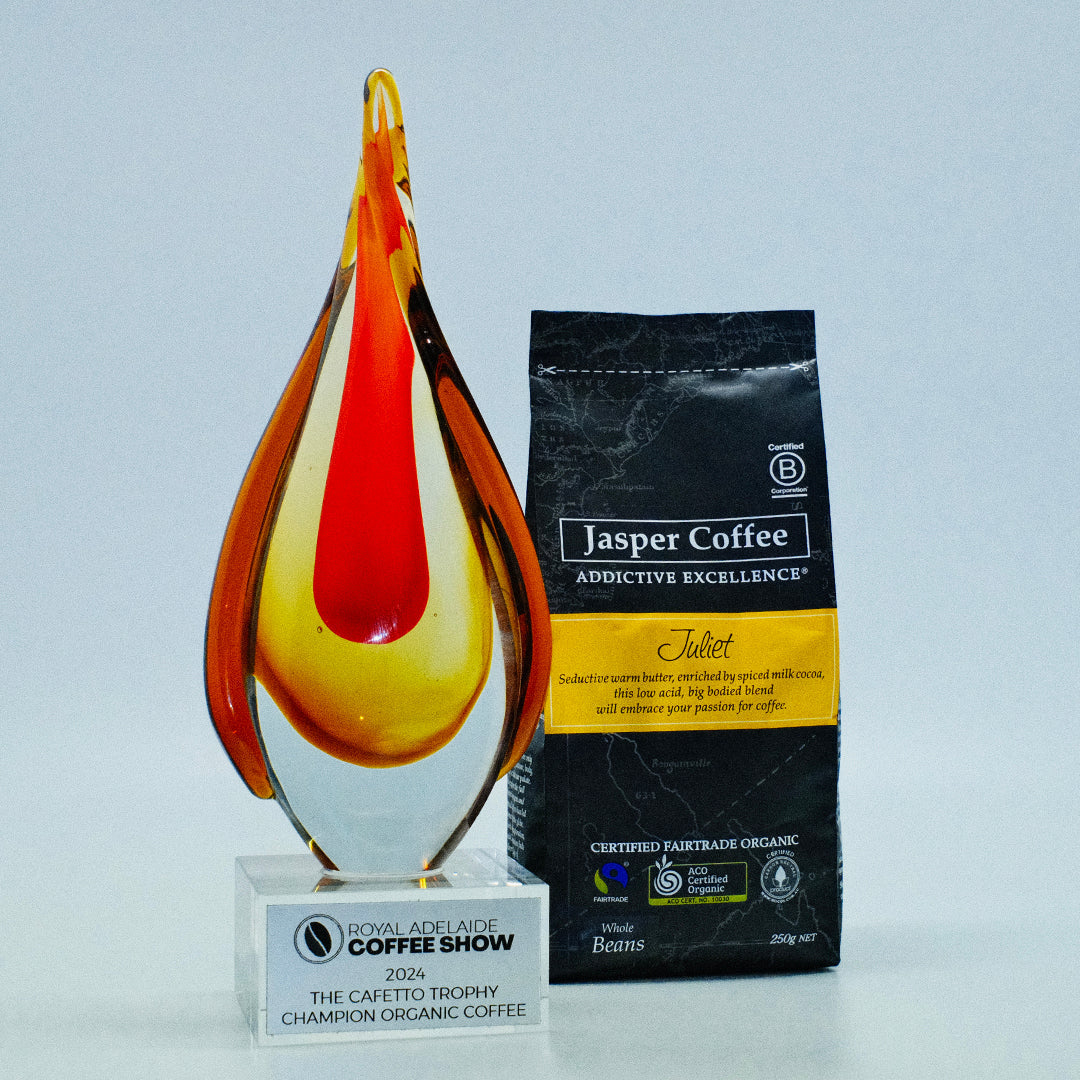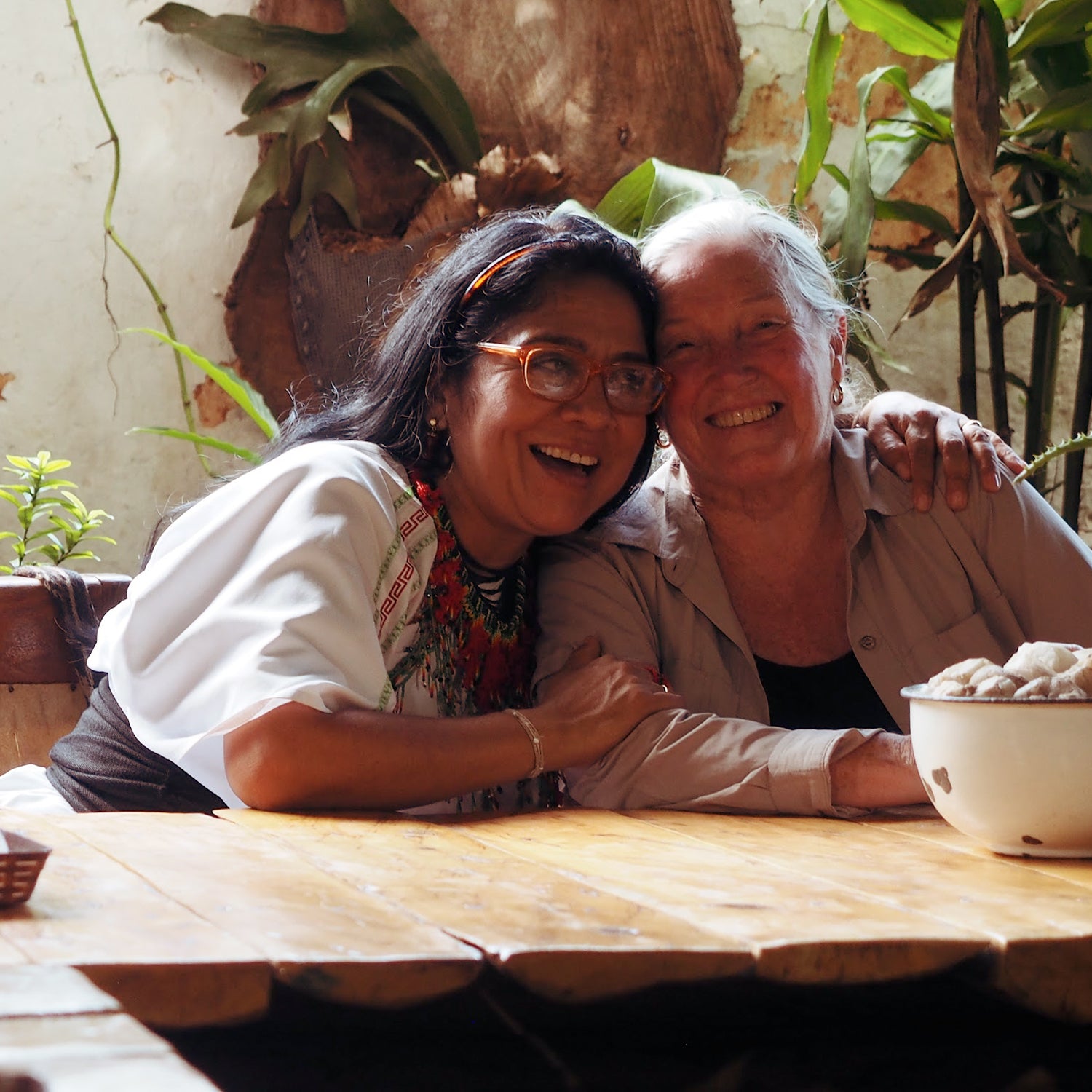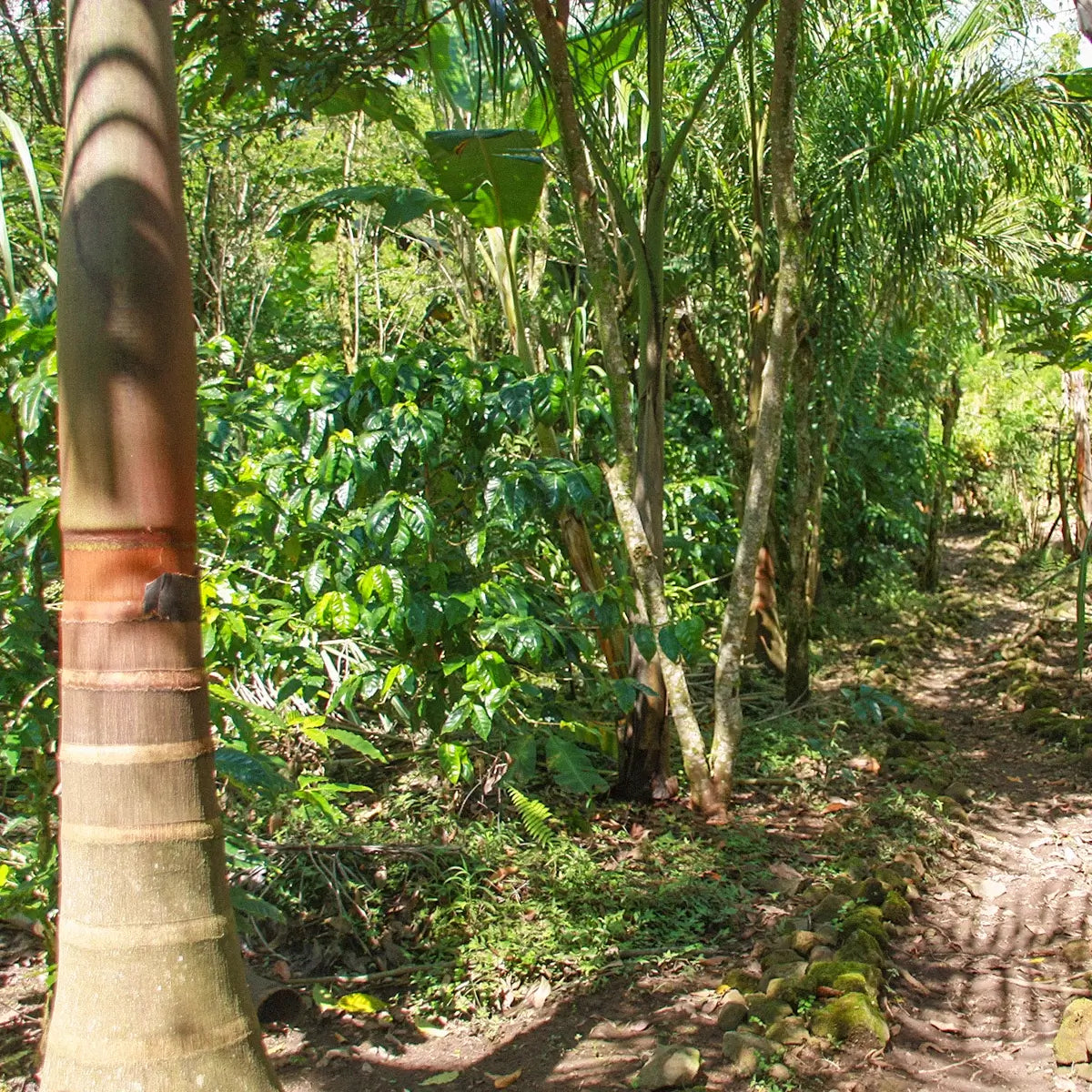Quick Facts
- Shade-grown coffee farms support up to 30 % greater bird abundance and 15 % higher species diversity than sun-grown plantations in places like Guatemala. (Source)
- A shade‑grown coffee farm with large canopy trees can sequester 70–80 tonnes of carbon per hectare—almost as much as a natural forest. In contrast, sun‑grown coffee typically stores less than 10 tonnes per hectare. (Source)
What Is Shade-Grown Coffee?
Shade-grown coffee is cultivated under a natural canopy of trees—just like it did in the wild. Rather than clearing forests for high-yield sun exposure, shaded farms keep woods intact, allowing coffee plants to grow slowly, naturally, with better biodiversity and more sustainably.
Why Shade-Grown Coffee Matters
Boosts Biodiversity
Shaded canopies of plants in coffee growing help boost biodiversity, helping insects an animals thrive in a natural habitat. (Source)
Pest Control with No Chemicals
Birds, insects, bats and lizards thrive in shade systems and naturally manage pests—damage from coffee berry borers can drop by over 70 % thanks to this biodiversity. (Source)
Healthier Soil & Water
Shade-grown coffee farms protect water quality and improve soil health because the tree canopy reduces erosion and chemical runoff. The leaf litter from shade trees also acts as natural mulch, enriching soil with organic matter and helping it retain water more effectively, which makes farms more resilient to drought. (source)
Climate Resilience
Shade trees store carbon—studies show shaded systems hold up to 58 % more carbon than sun-grown setups—and help stabilise farm microclimates. (source)
Why We Choose Shade-Grown and Organic at Jasper Coffee
We believe great coffee should do good. That’s why we always try to source beans that are shade-grown — often organic with no synthetic chemicals, strong forest cover, and farming methods that honour people and planet.
These practices support healthier wildlife habitats, richer soil, and fair livelihoods for farmers and they deliver beans that taste deeper, cleaner, and simply better.
Coffee is grown in the tropics, and often biodiverse equatorial rainforests are cut down to make way for high yield coffee plantations or even for growing the cash crop chat, as in Ethiopia.
However, Shadegrown means the coffee trees are planted under an indigenous or mixed forest canopy. This provides natural habitat and food for local wildlife as well as a vital haven for migratory birds. Traditionally in Ethiopia, seedlings are transplanted to the forests along with a taller companion tree seedling to maintain the integrity of forest canopy for the coffee trees.
These sustainable coffee crops protect a biodiverse environment and are often the sole source of cash income for the indigenous populations that produce them. In PNG, these shade grown coffee trees are protected with gusto by the local village coffee growers. Here, much coffee grows wild in the forest and is nurtured as Certified Organic. An errant producer, who dared to violate this rigour by introducing artificial fertilizer to the forest grown coffee, found he was rejected from the community for 7 years, along with his use of the forest for his coffee.
With habitat destruction ravaging equatorial rainforests, intelligent coffee producers are now planning for a sustainable future by planting coffee trees under an indigenous forest canopy cover. In Sidamo Ethiopia, heirloom and disease resistant varietals, are replanted into the forests from where they came as mature fruiting trees. With the leaf litter from the forests, the soil is enriched with humus and vital water retention to help the bacteria and soil flora invigorate soil health, which in turn, regenerates the economic cycle of harvesting the forest.
Europe is changing it's regulations around deforestation are effecting some growers, particularly in Ethiopia.
New sustainability regulations in the European Union (EUDR) designed to increase traceability and improve forestation in global supply chains are putting pressure on coffee-producing countries like Ethiopia to prove their beans are deforestation-free. This is where shade-grown coffee shines.
Many Ethiopian farmers already cultivate coffee under natural forest canopies, preserving biodiversity and preventing deforestation. However, smallholder growers often lack the resources to provide traceability that meets EU requirements. Supporting shade-grown, organic coffee not only helps protect ecosystems but also gives these farmers a stronger chance of maintaining access to global markets while preserving traditional, sustainable growing practices.
It will be tough for some growers to prove traceability despite growing coffee in well kept forested areas, mainly due to lack of resources and no previous need to do so.
The EU will likely need to find a way to help growers here where they are trying to do the right thing but may get caught in red tape selling into Europe.
Brewing with Purpose
Whether you're searching for shade-grown coffee, organic coffee, or Fairtrade coffee (perhaps all of the above?) Jasper Coffee takes these things seriously. Look for beans grown under forest canopies, certified organic, and roasted with care for people, planet, and flavour.
Drink some damn good coffee.





